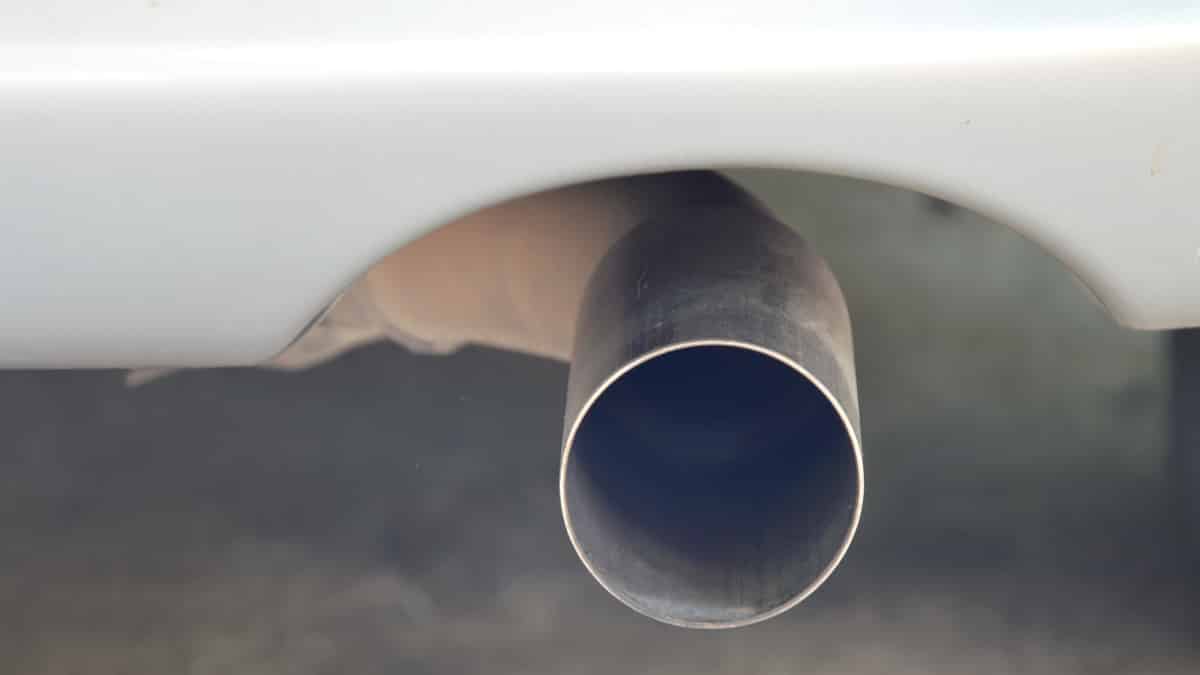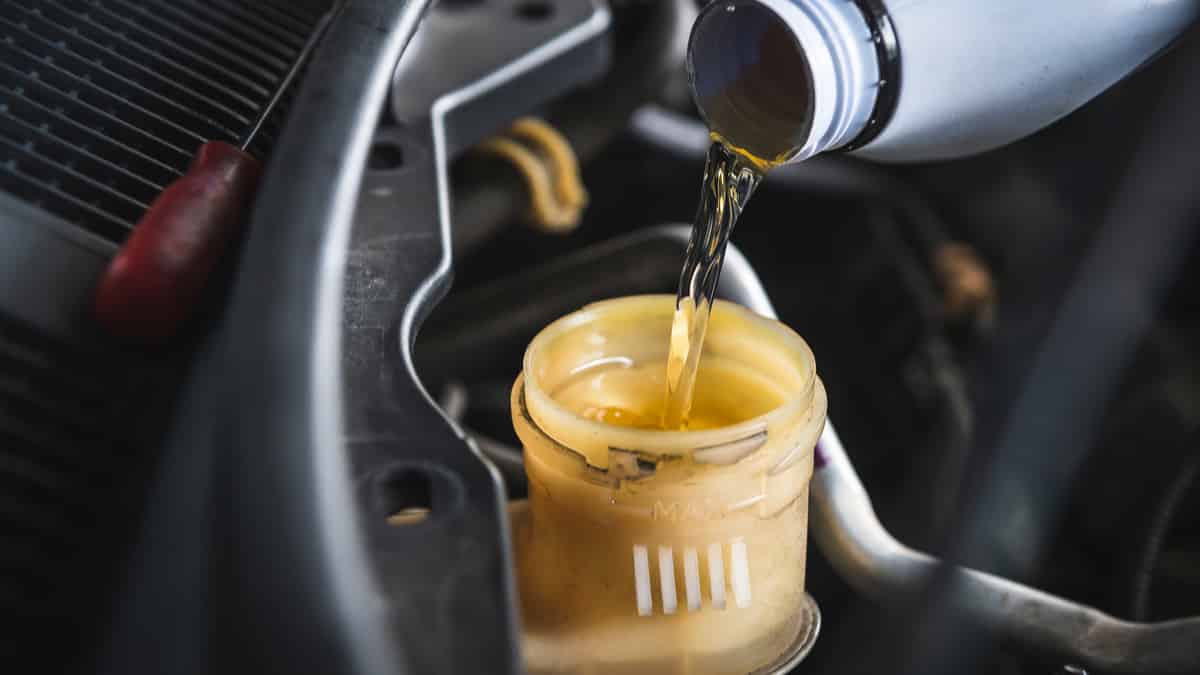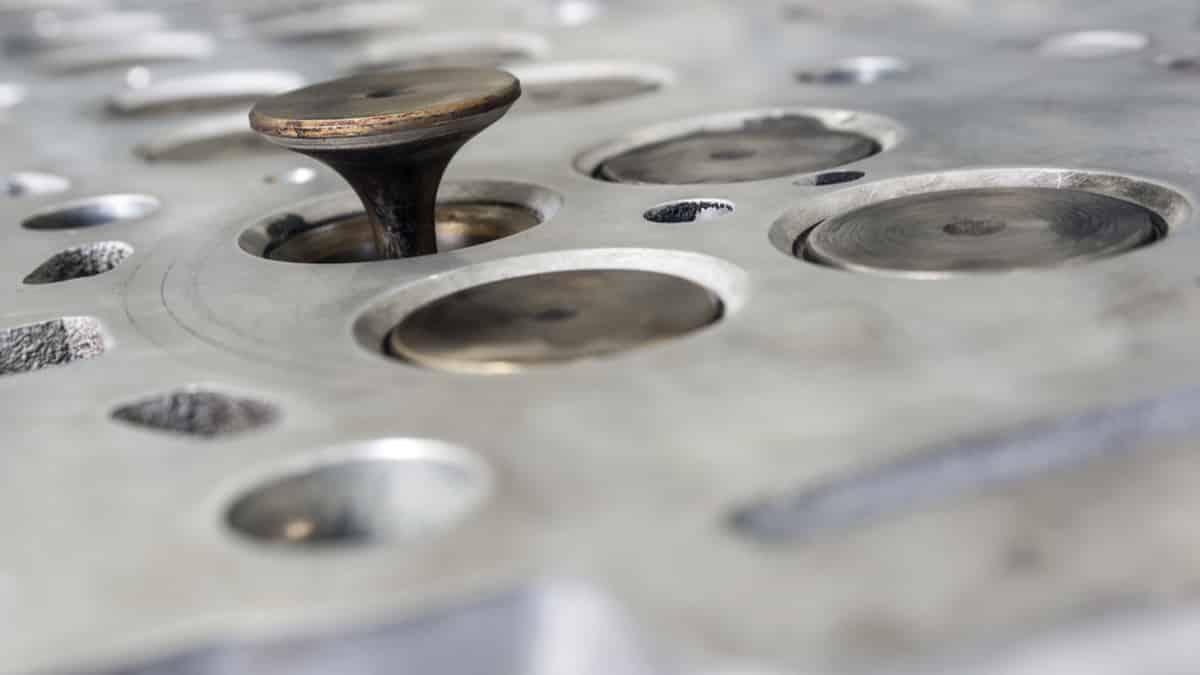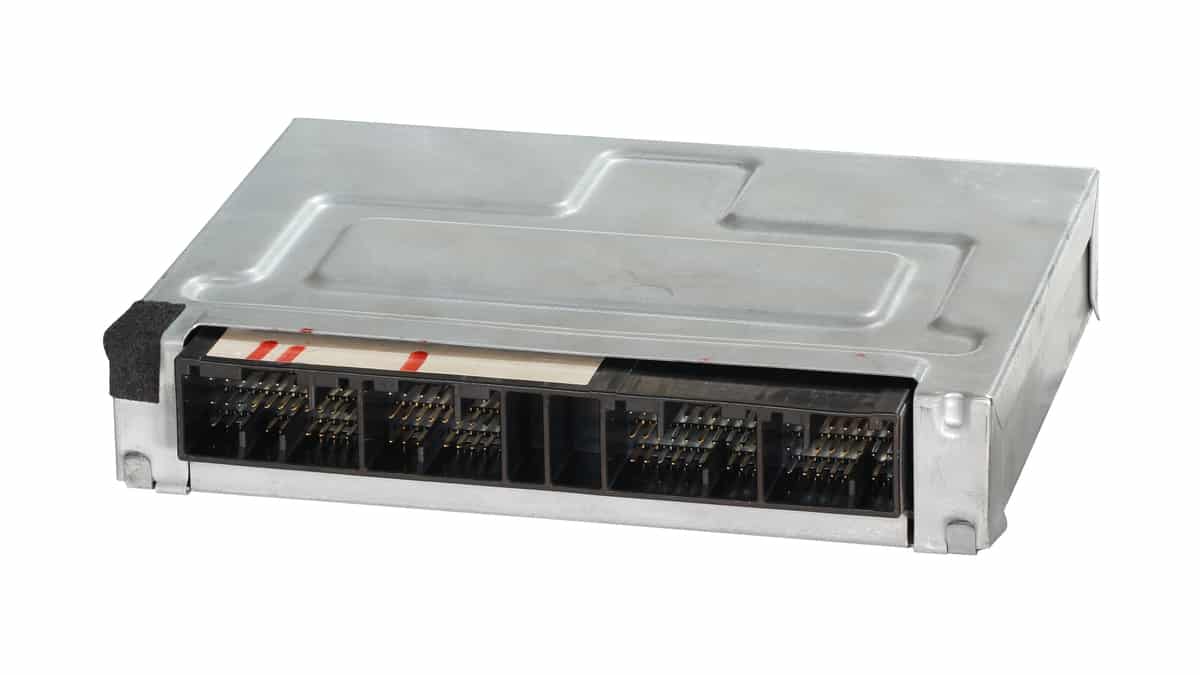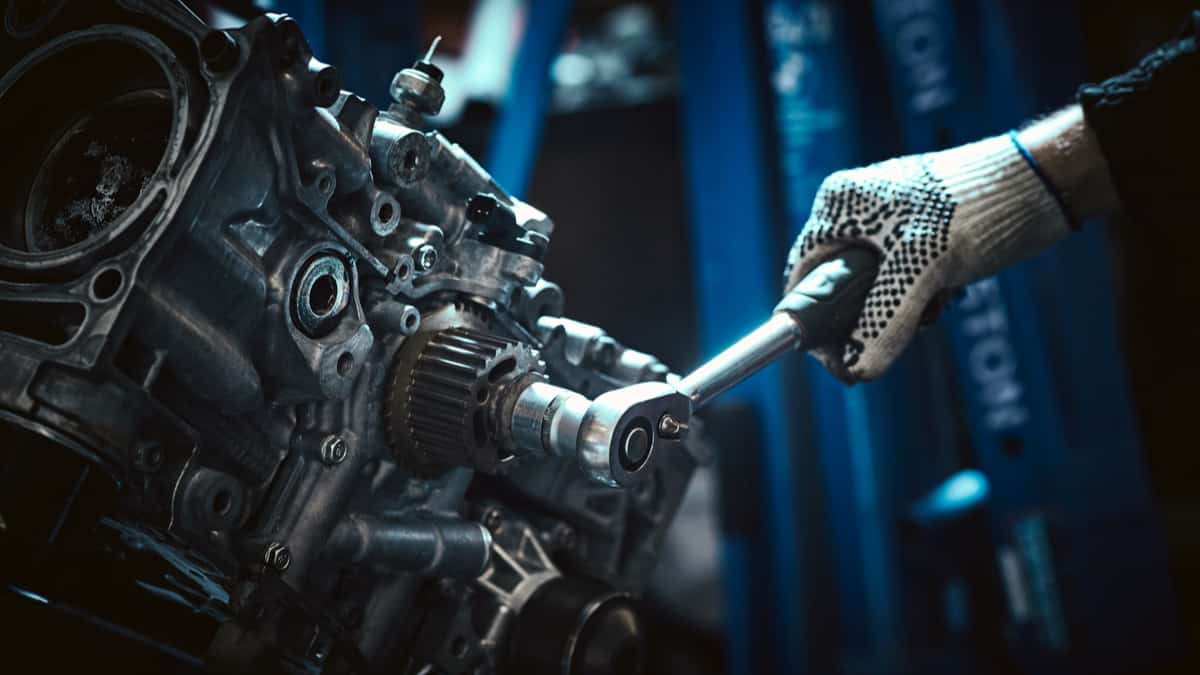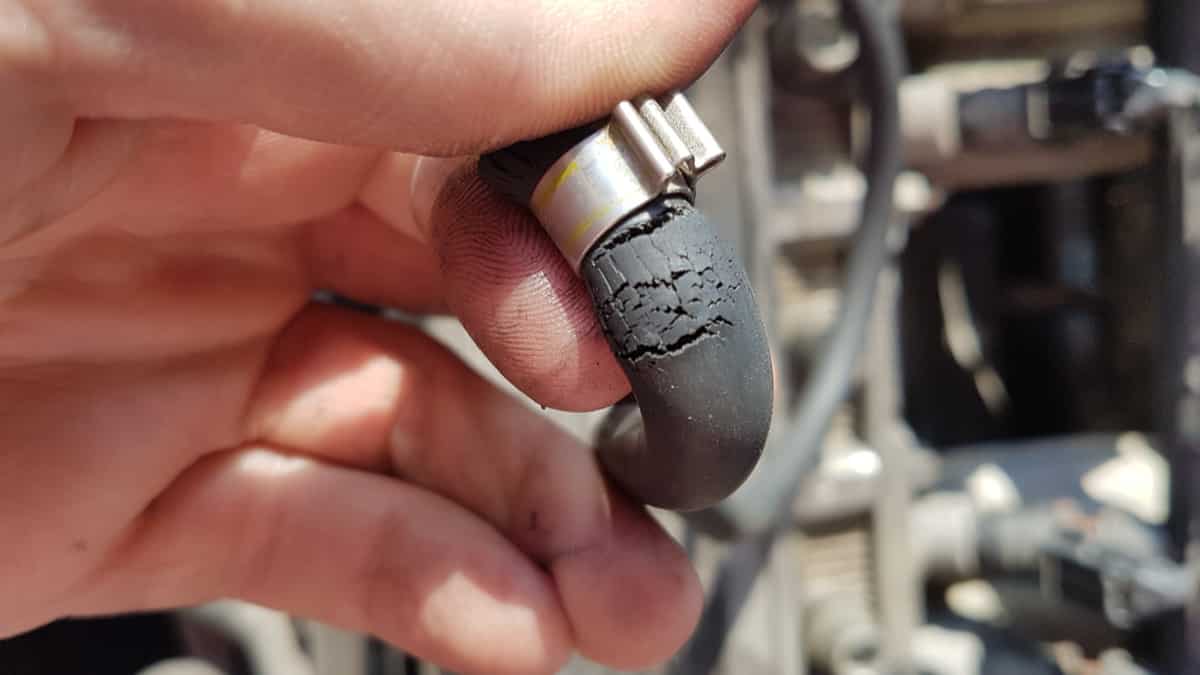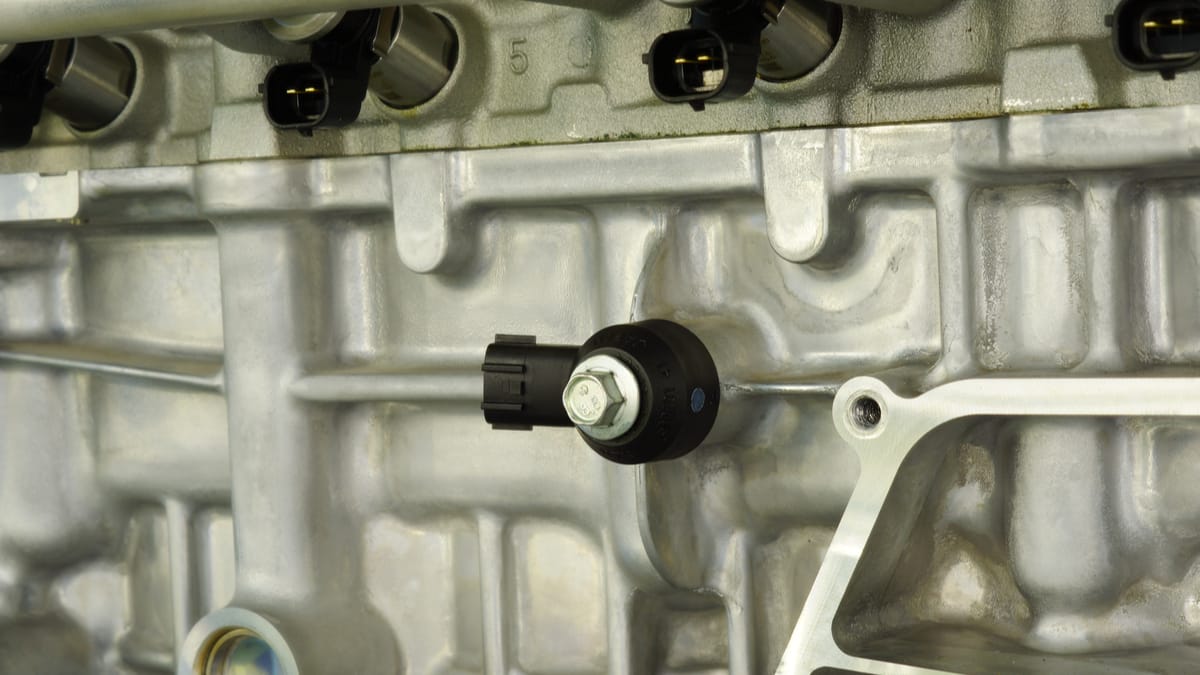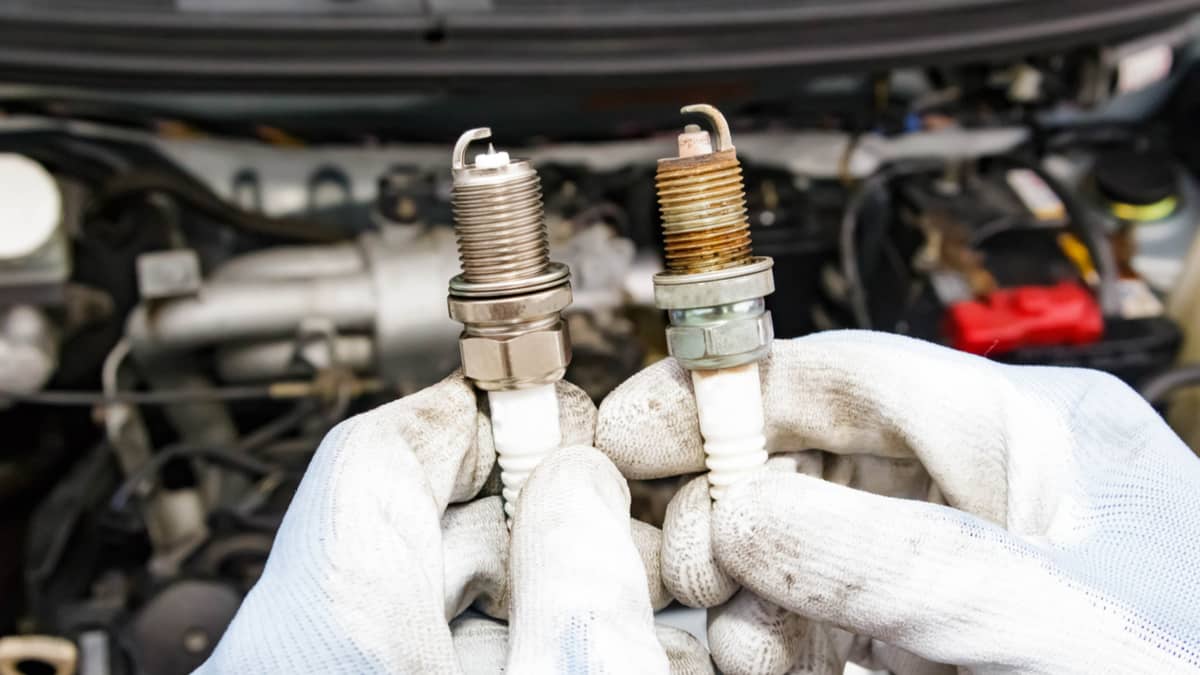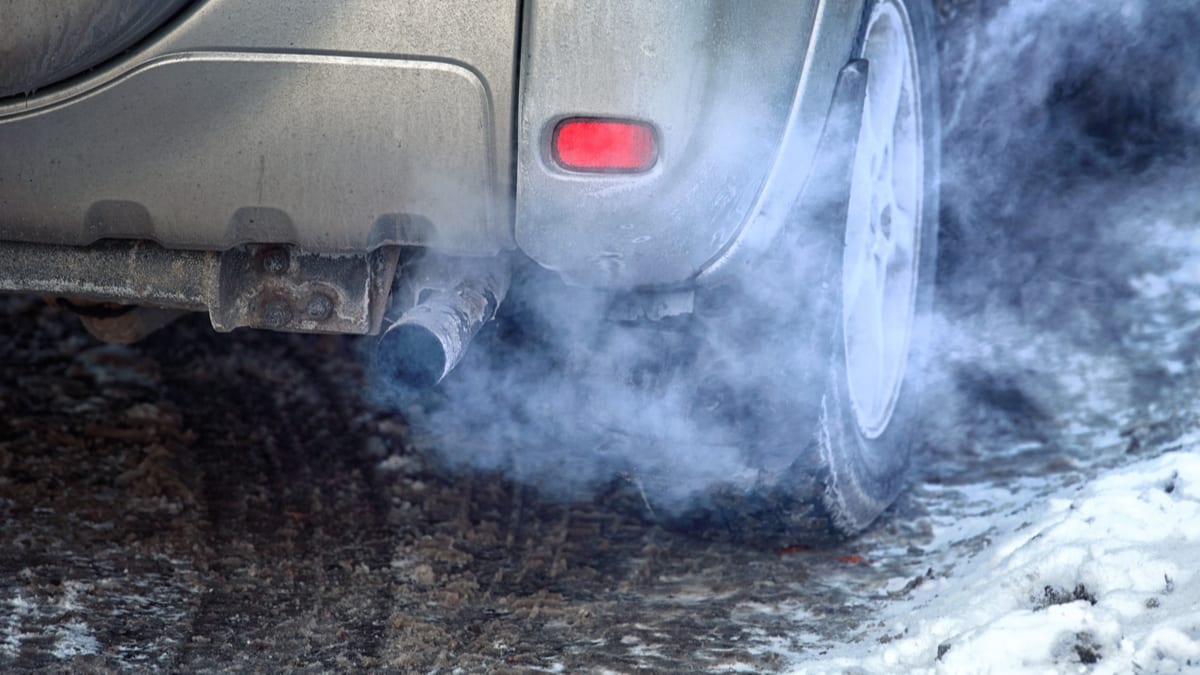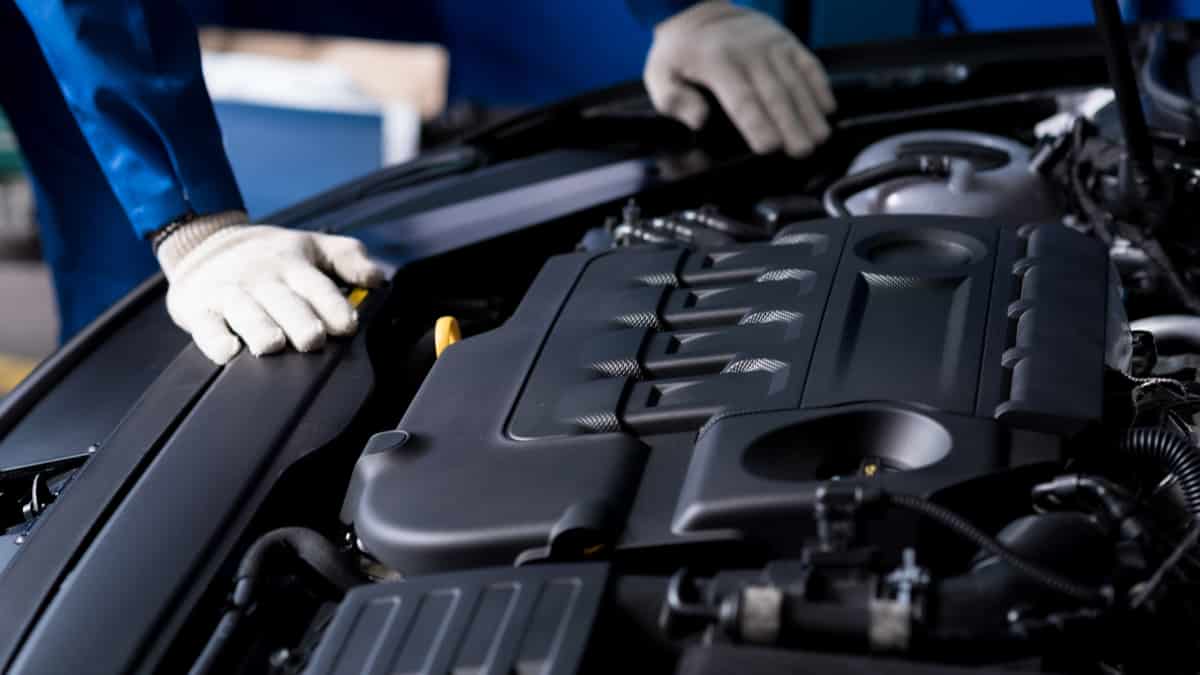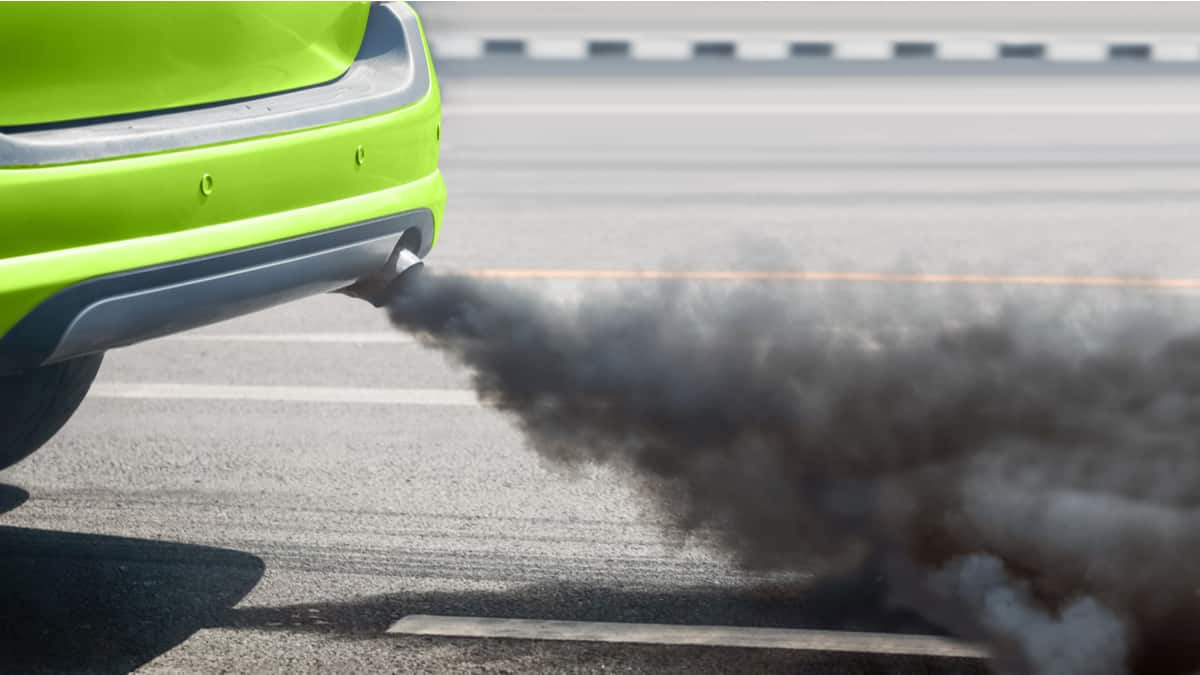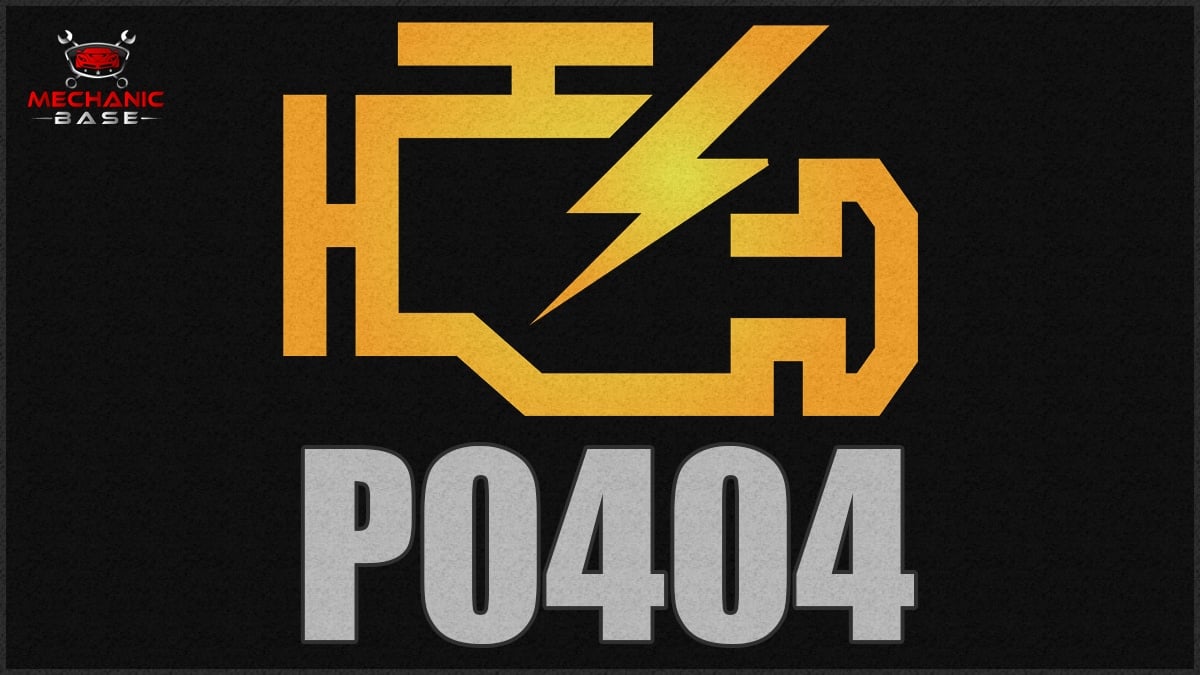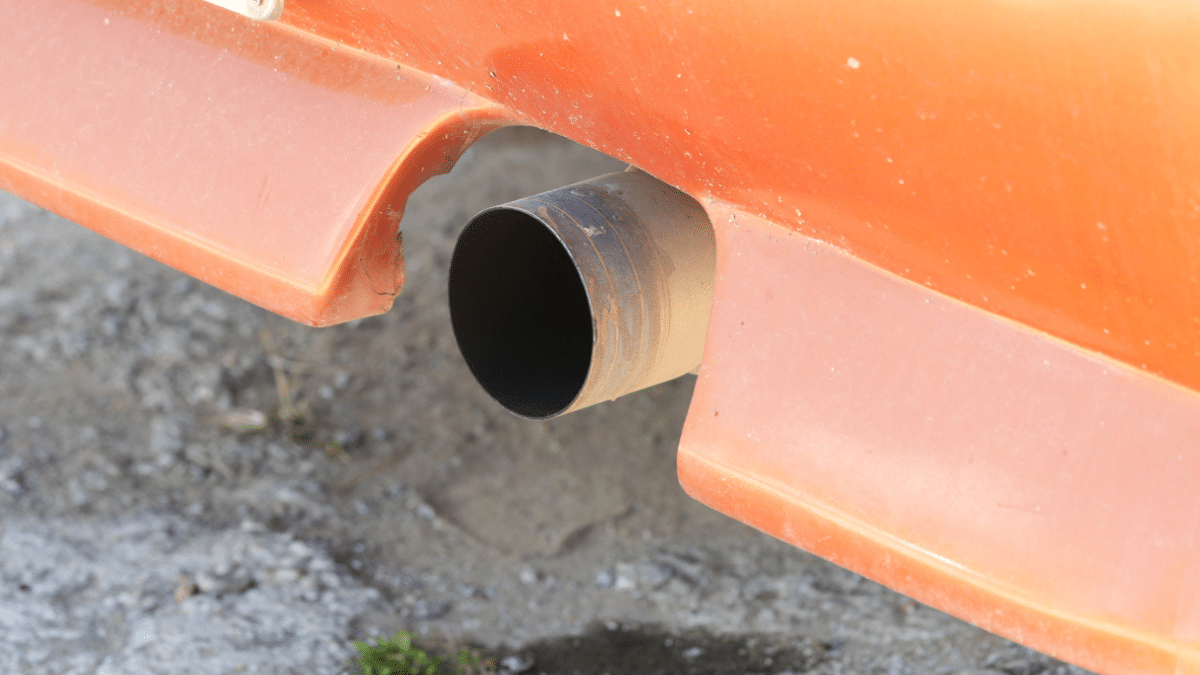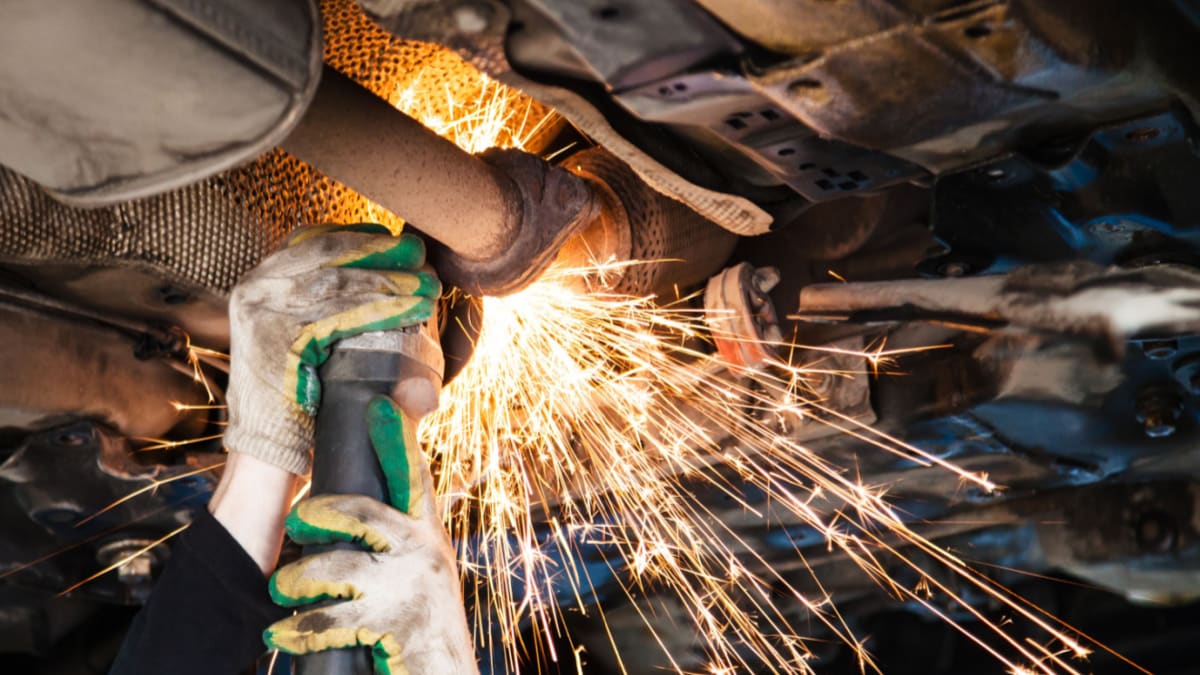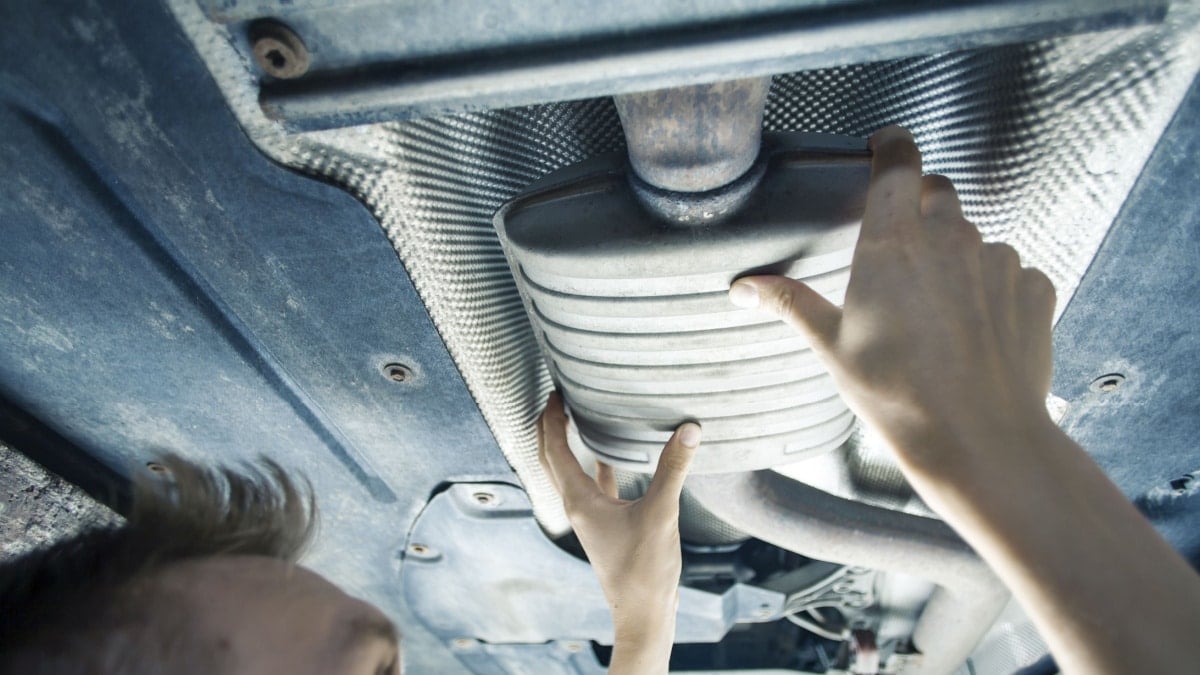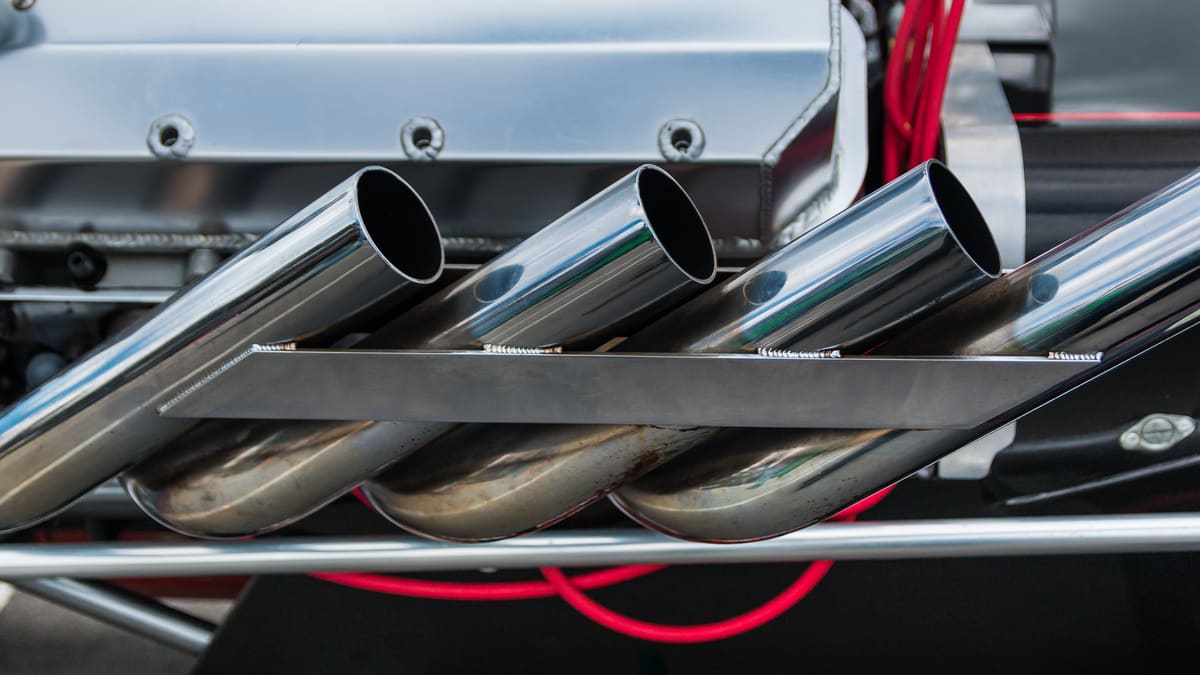An exhaust system is designed to carry exhaust fumes from your engine to the back of the vehicle to prevent you, as either the driver or passenger, from breathing in the harmful fumes.
It’s also designed to carry the exhaust fumes to the vehicle’s rear as efficiently as possible.
But what happens if it starts to leak? In this article, I will go through the common symptoms of an exhaust leak, and how much it will cost to repair it. Let’s look at the signs first.
Exhaust Leak Symptoms
The main symptoms of an exhaust leak include:
- Higher engine sound than usual
- Blowing sound from underneath the car
- Check engine light
- Low Engine Performance
- Unusual Odor
- Failed emission test
While these are not all possible signs, it’s a good start. If you suspect that your exhaust has started to leak fumes, take a look through the list below and see if you can diagnose the problem.
Here is a more detailed list of the signs of a leaking exhaust to look for:
1. Higher Engine Sound Than Usual

The first symptom that you will notice when you have an exhaust leak is that your car will probably sound louder than usual.
You will find one or two mufflers that are heavily reducing the engine sound on your exhaust pipe.
If the exhaust leak occurs before one of these mufflers, the sound will not be silenced by the mufflers because it will flow out before them. This will cause a higher engine sound, depending on how large the exhaust leak is.
2. Blowing sound from underneath
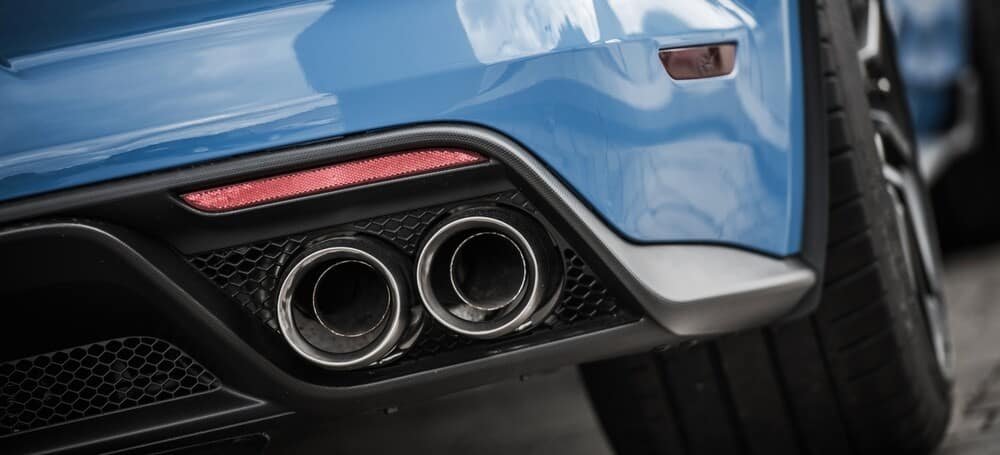
If the exhaust leak is just a small hole, it can sometimes create a blowing sound when you rev the engine. Depending on the size of the whole it can create different sounds, and in some cases, it can even cause high pitch whistling noises.
If you can hear a “blowing” sound from underneath your car and it wasn’t there before, you most likely have an exhaust leak.
3. Check Engine light
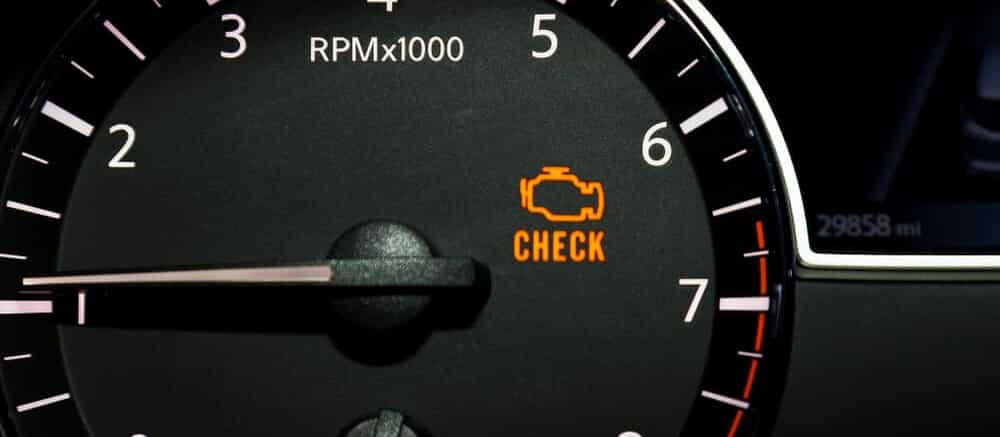
Modern cars have sensors on the exhaust system to measure the fuel mixture escaping from the engine. One of these sensors also measures the efficiency of the catalytic converter. These sensors are called O2 or Oxygen Sensors.
If you have an exhaust leak before one of these sensors, it will cause them to measure faulty values, and the engine control unit will recognize this. This will cause the check engine light to appear on your dashboard.
4. Low Engine Performance

The same thing applies here as with the check engine light. When there is an exhaust leak before one of these sensors on the exhaust pipe, they will get wrong values, and they will send false information to the engine control unit.
The engine control unit will then use this information to calculate the air-fuel mixture of the next cycle in the car engine, and because the values are wrong, it will cause an even stranger air-fuel mixture. This can cause rough idle, slow acceleration, rough acceleration, and misfires.
If you hear a louder noise than usual from the engine and notice that the engine performance has dropped, it is definitely time to look for an exhaust leak.
5. Unusual Odor

Another clear indicator that your exhaust has developed a leak is if you can smell exhaust fumes when the engine is running.
As stated at the outset, your exhaust system has been designed to prevent this from happening. So, if you begin to notice a strange smell, something on the exhaust has failed and can no longer contain the fumes.
Prolonged exposure to exhaust fumes can be incredibly harmful to humans. If you do begin to notice the smell of exhaust fumes, then try and get the leak fixed as soon as possible.
6. Failed emission test
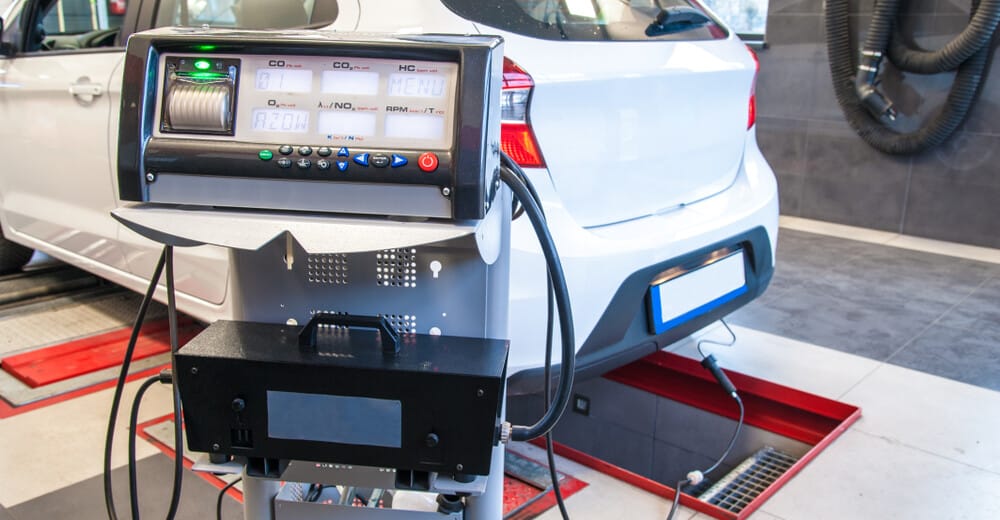
In some states and countries globally, you have to do a yearly emission test to pass the inspection. If you have an exhaust leak anywhere on the exhaust system, it will affect the emission test.
If the leak is before the O2 sensors, it will mess with the air-fuel mixture, and if the leak is after the O2 sensors, the emission test will show a too lean mixture, and you will fail the test, depending on the size of the exhaust leak.
Is it Safe to Drive with an Exhaust Leak?
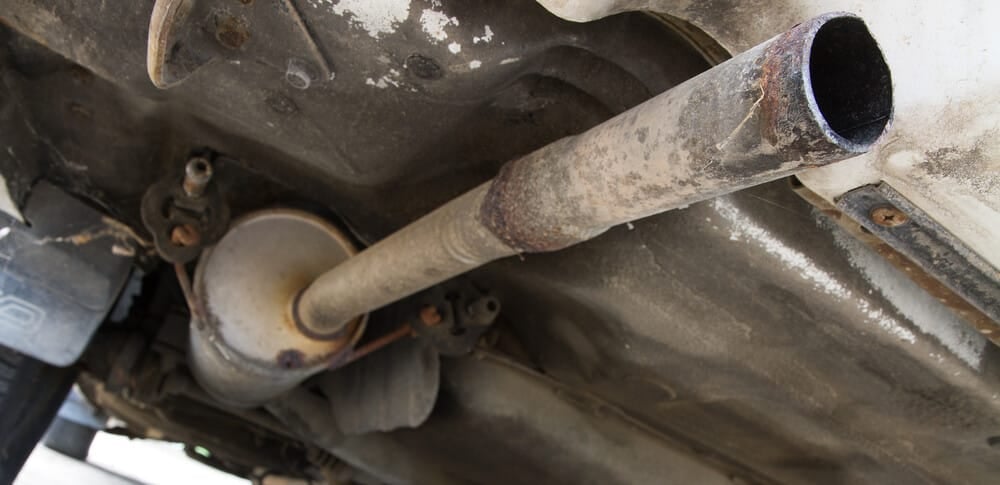
I do not recommend driving around with an exhaust leak, because it is harmful to both you and the environment. There is also a risk that your car will catch on fire if you are unlucky.
The safety of the vehicle will depend greatly on what’s causing your exhaust leak. As already stated, exhaust fumes can be harmful if you’re exposed to them for a prolonged period of time.
Exhaust fumes are very hot, and sometimes the fuel in the exhaust pipe gets ignited. If you are unlucky and the exhaust leak is in the wrong place, it can cause your car to catch fire.
If you’re not sure, have your exhaust inspected by a professional, as this can usually be carried out either free of charge or at very little cost.
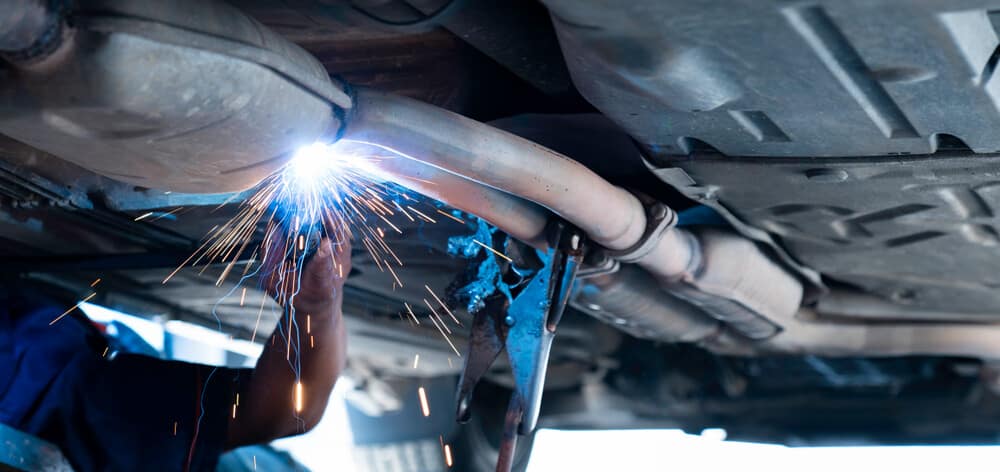
Exhaust Leak Repair Cost
The average exhaust leak repair cost is usually between $100 and $800, heavily depending on where the exhaust leak is.
Here are the average repair costs for exhaust leak repairs. These prices include part and labor costs. This can heavily depend on your car model.
| Part Replacement | Replacement Cost |
| Catback Exhaust Replacement | $150 to $600 |
| Exhaust Joint Replacement | $30 to $200 |
| Exhaust Pipe Welding | $20 to $100 |
| Catalytic Converter Replacement | $400 to $1500 |
| Exhaust braided flex pipe | $100 to $300 |
| Whole Exhaust Pipe Replacement | $300 to $1200 |
| Front Exhaust pipe replacement | $150 to $600 |
Sometimes you can be lucky, and the exhaust leak can be fixed with a welder. This can solve your exhaust leak problem for free if you know how to do it yourself.
Exhaust systems can often be replaced in sections without having to replace the entire system. This saves a lot of costs.
Catalytic converters and DPF’s are often on the more expensive side of the scale, so if you can fix your leak without replacing these, that’s always a bonus.
